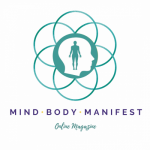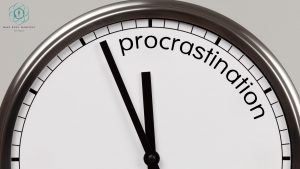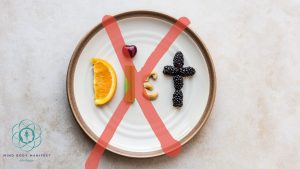
The Number One Thing People Get Wrong About Gentle Parenting
The trope of the miserable, frazzled, stressed out parent is so ubiquitous in our society that it’s often played for laughs. Whether that’s designed as comic relief for those of us currently living that experience, or the slightly horror-tinged caricatures that can only be intended as a thumbs up to the happily child-free among us, the archetype is universally recognisable. On some level, in our collective subconscious we have been marinated in the idea that this is simply the lot of parents: to be anxious, sleep-deprived, and to have no personal space, time alone, hobbies or interests outside those of their children, among other discomforts. We ourselves sometimes even reproduce this idea and feed it to others.
That’s not to say that that’s an *entirely* false impression, all of those things definitely form a part of the experience (partially because we’ve not set up the way we live collectively to be fully supportive of children, parents and family life in general – but that’s a whole other article!). However, this ingrained cultural expectation that parenting is hard, that it will always be hard, and that it should be hard…sets us up for a fall from the moment we start down this path.

The parents that I work with in my business as a Family Happiness Coach are looking for a way to do this parenting thing differently; they know what didn’t work for them in their childhood but they are struggling to find an alternative that they can feel good about, and which guides their children’s behaviour towards positive outcomes, whilst also respecting them as human beings and creating as connected and rewarding a relationship as possible with them. A tall order, you might say! This is exactly the kind of result that (according to decades of research) the approaches known as positive parenting, peaceful parenting, conscious parenting, etc, have shown is not only achievable, but creates the conditions for children and parents to thrive. In the UK, we mostly call it ‘gentle parenting’, and this is the method that I have studied and that I assist families to explore for themselves.
Ask the average person who has dabbled a little in researching or using gentle parenting methods what the definition of this approach is exactly, and they will usually tell you something along the lines that it’s about ‘seeking and responding to the feelings and needs of the child without blame or judgement’, maybe adding that it’s about creating a sense of safety and security, or they may focus on the use of curiosity or playfulness as key tools. None of that is incorrect, but when we stop there, we are missing one of the most absolutely crucial elements of what makes gentle parenting an effective solution to navigating the myriad problems of parenting. So often this is the element that the clever and compassionate people who come to me have been overlooking in their quest to do their best by their children.

Dear MindBodyManifest reader, save yourself several sessions worth of coaching fees just by carefully reading and absorbing the next couple of paragraphs!
The biggest mistake (in my experience) that most people make when attempting to make use of gentle parenting, is that they sometimes forget that the ‘gentle’ part doesn’t only apply to how they treat their children; it applies just as much to how they treat *themselves*. Have you learned that your child isn’t at their best when they are tired, disappointed, hungry, etc, and so hence you need to try to stay aware of those metrics and cut them slack when those limitations are in play? Well how much slack do you cut *yourself* when those are the baseline that *you’re* working from? Have you readily absorbed (and seen the proof!) that the results you get from your child behaviour-wise are drastically improved when you use encouragement, support and praise, rather than when you harangue and talk down to them? Now think about the the voice in your head that you use to talk to yourself; is it compassionate, understanding and kind? Or is it shrieking at you that you are a terrible failure and you do everything wrong?

It may be that our own parents treated us wonderfully, but even in that best case scenario we still have the wounds inflicted by school and society to recover from. A gentle parenting journey is always also a journey of learning to gently re-parent ourselves. From prioritising the small essential tasks of self-care throughout the day (such as drinking enough water, or doing regular deep breathing, or whichever things work best for you) with the same level of commitment with which we make sure our families have dinner to eat and clean socks and pants to wear; to holding our self-image softly, and forgiving ourselves easily; I find that each parent has so much potential to give themselves an easier time if they truly put their mind to it. It’s my belief, personally, that put our minds to it we absolutely must (as a matter of urgency!) because how can we be the parents our children need if we are both internally sabotaged into having less capacity for patience and calm available to us for the task of parenting, and also unable to practice what we preach to them within our own lives and heads?
I wish you and your family a joyful parenting and childhood journey, and I hope that I’ve given you some food for thought which might impact your wellbeing in a positive way. Please do get in touch and let me know if you have found this article useful, my inbox is always open!

Erin is a parent, step-parent and plant-mama with a creative streak, who’s on a mission to make our world a better place. After a lifetime as ‘That Friend You Call When You Need To Talk Through A Problem’ she qualified as a Family Coach, in order to offer her skills to a wider audience and spread the communication hacks she finds essential for compassionately standing your ground in everyday life. She is also an NYA qualified Youth Worker, and a Community Development Worker; with 20 years experience in working with children and young people of all backgrounds, and in assisting people of all ages to work together effectively in creating and running projects which enrich their worlds. She specialises in working with rebellious and unconventional families, especially those where someone shares her neurodivergence (ADHD)…and she makes a mean cup of tea!






